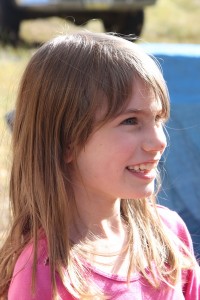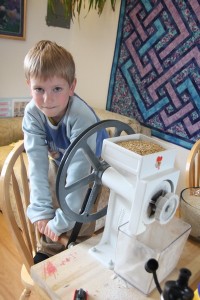
Image courtesy of Sias van Schalkwyk via stock.xchng
That wasn’t exactly the question she asked me.
More it was, “He was awesome. How did that happen?!”
I didn’t really have time to research an answer, and part of me felt, Hey, I‘m not a teacher, how do I know?
But thankfully I was stopped by a phrase that popped instantly into my head.
Tonguepolishing.
Or should that be two words?
Tongue Polished.
The designation refers to old, old stories that are elegant in their simplicity, and may even contain absurdities that are so entrenched that that they are simply accepted without any attempt at explanation.
Folktales. My little corner of enjoyment in the esoteric.

Image courtesy of Ove Tøpfer via stock.xchng
In our own, more prosaic, lives, we still experience the tongue-polished story. These are the stories that make up the Family Lexicon.
A Lexicon is like a dictionary (a collection of words), but more specialized. Linguistically it’s a catalog of a given language’s words. The way I use it here is just to give a name to that collection every family grows as it creates its own culture with specialized language, stories and lessons learned.
The longer a story’s been around, the longer it’s been told and re-told, the more streamlined it gets. Often it loses some of the random, irrelevant facts. Frequently the teller is no longer recalling the event itself, but rather the best words with which to describe it.
But that’s not the case, at first.
Something happens (Baby born before we get to the hospital!) and you talk about it because it’s extraordinary, an adventure. But what do you tell? what part did you play in the story? What words you use are not usually the main thing you’re focused on. In those first days, you’re only remembering.
It’s at this point you may begin to see there’s more to storytelling– and, therefore, writing– than most of us think about at first.
There are four levels of work involved in writing, and this, I believe, is part of what complicates the process of learning how to write. It’s this 4-step process, unidentified, that I think gets people in trouble.
-

Image courtesy of D. Sharon Pruitt via stock.xchng
Idea generation. You have to come up with something to write ABOUT.
- Translation from idea into language.
- Translation from head-language to language-on-the-page (this essentially means holding onto the words you’ve come up with long enough to get them onto the page).
- The physical act of recording the words.
Some people get stuck at step-1, and that has almost the easiest solution. Even if you never know what to write about, you might be awesome once you get started.
If this is you, there are all sorts of books for sale and even free options on the internet to get you started: just Google writing prompts.
For step-2 (image into language), assume that time will be involved. Give yourself permission to make a few running jumps. Throw some words at the idea (like spaghetti at a wall) and see what sticks. If you’re a natural talker, use that facility with language that you already have. Talk to a friend, talk to yourself or your pet. Talk into a recorder of some kind, and see if you like what it sounds like later.
This is what you do in that early stage of storytelling. You say what you remember. Other people remember it differently, or your listener has a question. The next time you tell the story you shape the transmission differently, based on what you learned from your earlier audiences.
You’re half-way through the process, and it’s something you’ve done all your life!
Continue reading »
 When you go to counseling for the first time, it’s useful—for you and the therapist—to know why.
When you go to counseling for the first time, it’s useful—for you and the therapist—to know why.
 Co-written by me and
Co-written by me and  This is the story of my ending up in a very unexpected and deep depression.
This is the story of my ending up in a very unexpected and deep depression.



 First, the bad news:
First, the bad news:



